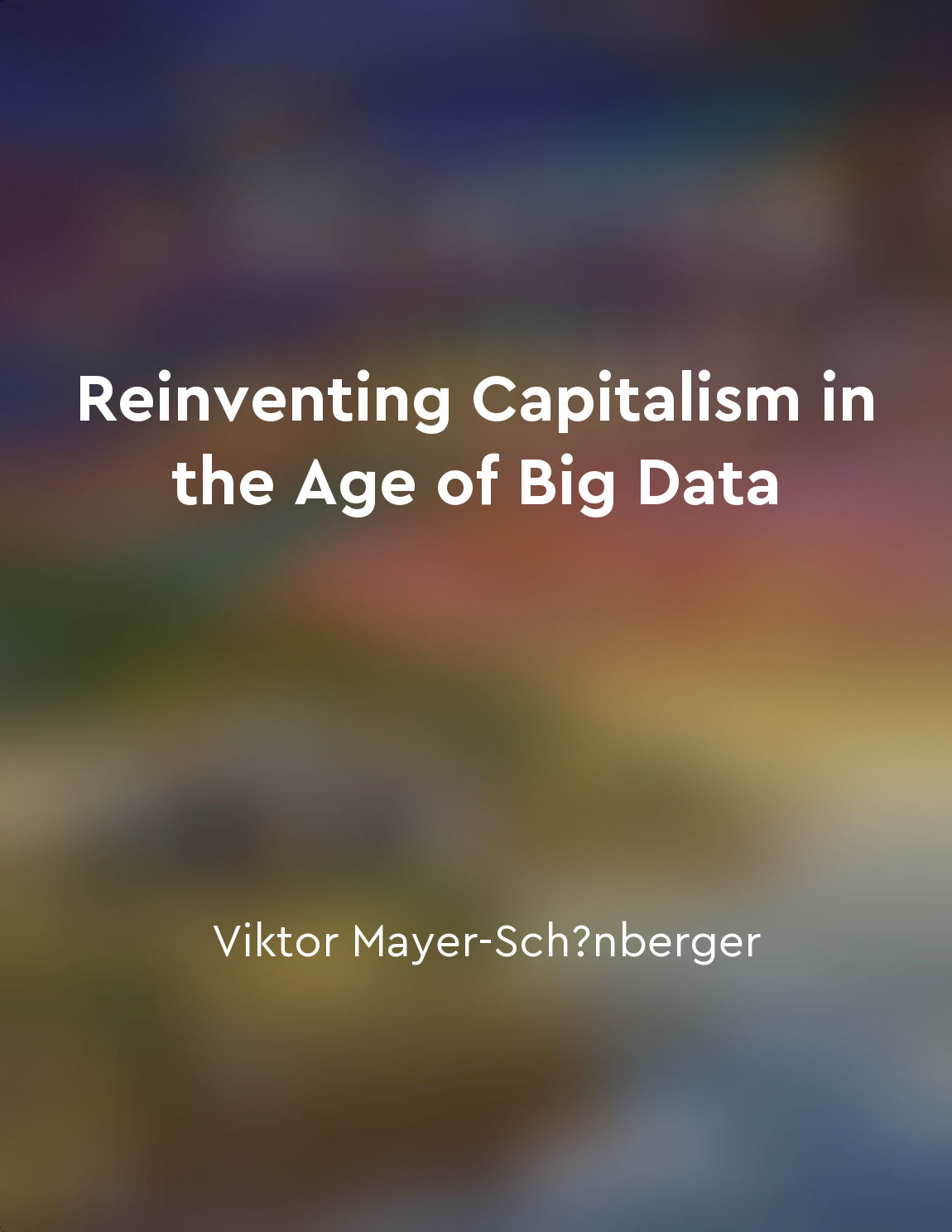Capitalism needs to adapt to the age of big data from "summary" of Reinventing Capitalism in the Age of Big Data by Viktor Mayer-Schönberger,Thomas Ramge
In today's interconnected world, data is being generated at an unprecedented rate. This deluge of information has the power to transform the way businesses operate, reshaping the very essence of capitalism. Traditional models of capitalism are built on the premise of scarcity - the idea that resources are limited and must be allocated efficiently. However, in the age of big data, the landscape has shifted. Data is abundant, and the challenge now lies in harnessing its potential to drive innovation and growth.
Capitalism, as we know it, is in need of a fundamental reimagining to fully leverage the power of big data. Traditional economic models are ill-equipped to deal with the sheer volume and complexity of data that is now available. In order to thrive in this new era, businesses must adapt their practices to incorporate data-driven decision-making processes. This shift requires a fundamental rethinking of how value is created and captured in the digital age.
One of the key challenges businesses face in adapting to the age of big data is the need to develop new business models that take advantage of the opportunities presented by data. Traditional models based on physical assets and linear value chains are no longer sufficient in a world where data is the new currency. Companies that are able to harness the power of data analytics will gain a competitive edge, enabling them to innovate faster, make better decisions, and create more value for their customers.
At the heart of this transformation is the concept of data-driven capitalism, where data becomes the primary driver of economic value. By leveraging data analytics, businesses can gain new insights into customer behavior, market trends, and operational efficiency. This, in turn, enables them to optimize their operations, develop new products and services, and create more personalized experiences for their customers.
In order to fully realize the potential of data-driven capitalism, businesses must also address the ethical and regulatory challenges that come with the territory. As data becomes increasingly valuable, questions of privacy, security, and ownership become paramount. Companies must establish robust data governance frameworks to ensure that data is used responsibly and ethically, while also complying with evolving regulatory requirements.The age of big data presents a unique opportunity for businesses to reinvent capitalism for the digital age. By embracing data-driven decision-making processes, developing new business models, and addressing ethical and regulatory challenges, companies can position themselves for success in a rapidly evolving economic landscape. The future of capitalism lies in the hands of those who are willing to adapt and innovate in the age of big data.

Open in app
The road to your goals is in your pocket! Download the Oter App to continue reading your Microbooks from anywhere, anytime.


